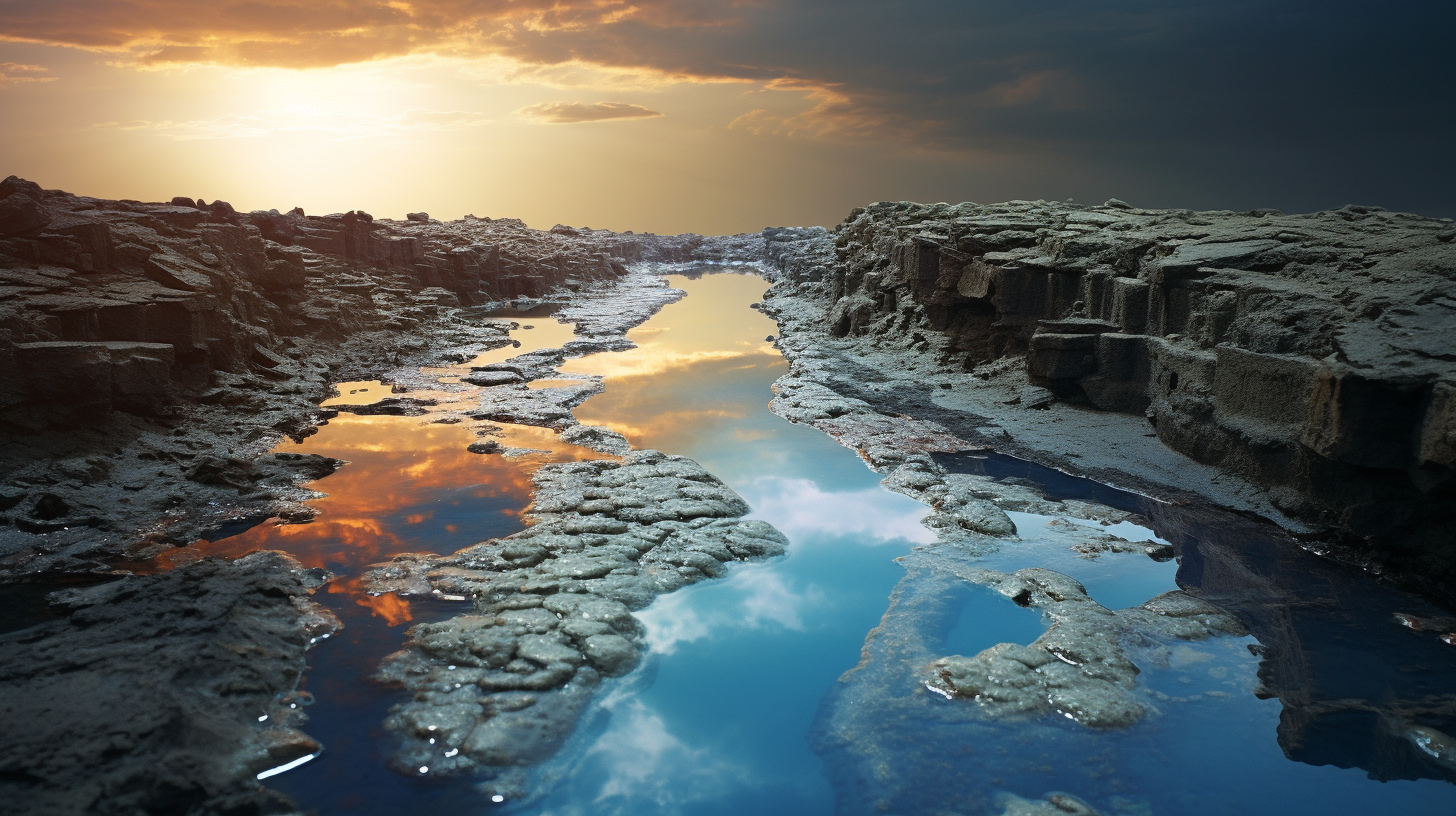In a world where the horizon shimmers with the promise of water, the reality is stark and arid: freshwater has become the ultimate mirage. Once abundant rivers and lakes have dwindled into myth, their dry beds now cradle the dust of civilizations too parched to weep. This dire portrait is not drawn from some far-flung future; it’s a reflection in the cracked mirror of today’s reality, where freshwater scarcity has emerged as one of the most harrowing crises.
As our journey into environmental dystopia deepens, we come to the devastating impact of water shortages on societies stretched to their limits. Imagine cities as empty husks, their inhabitants having fled in a silent exodus to seek the vanishing droplets of life. We’re witnesses to agricultural collapse, where fields lie fallow and the concept of harvest has decayed into haunting folklore. Even the mirage-mongers – those selling tales of secure water futures – have fled, their deceptions laid bare.
The once-celebrated milestones driven by water’s ebb and flow – festivals, traditions, and the simple act of cooking with clean water – are no longer. In their stead, new customs rooted in scarcity have arisen, like the ghoulish gala of ‘The Last Drop’ or the macabre trading of personal heirlooms for a canister of water. How did we plummet down this precipice? The answers are complex and entwined with the frailties of human ingenuity and the ruthless grip of climate change.
Remember the tales of ‘Hydroraiders,’ the ones who pillaged water resources as if they were gold? Their age has ended not in a clash of armies but in a whimper of realization that there was nothing left to steal. The advanced technologies we once lauded – the cloud seeders, the desalination towers, the atmospheric water generators – now stand as monuments to hubris, incapable of squeezing moisture from a world bled dry.
In this sweeping panorama of despair, we see the mirage of freshwater for what it truly is: a tantalizing, torturous reverie that serves only to deepen the thirst for what was once a birthright. The ‘Phantom Harvests’ of yesterday are not isolated tragedies. They’re the markers of a world cascading towards a future where a sip of water is an ancestral memory, a story for the young who have never felt a raindrop on their skin.
As we chart this bleary landscape, we stumble upon pockets of resistance: hidden enclaves where outcasts brew toxic puddles into potable sips, or lone figures trekking vast distances with the hope of a mythical spring whispered in olden tales. Their struggles are not for a grand reversal of fate; they fight for mere survival, for the next breath in a dust-choked existence.
The conversation on water scarcity has transformed from a call to arms to a retelling of history. It’s no longer about if we can save our freshwater sources but how we recount their loss. The mirage has become both a metaphor and a reality: the hopeful illusion of water and the cruel deception cast by a planet in distress. It is through these visions that we continue to paint our cautionary canvases, not to awaken hope, but to stoke the embers of reflection and remorse.
And yet, amidst these bitter truths, the question lingers hauntingly in the scorching winds: can we change the narrative, or are we fated to chase mirages until the very end
